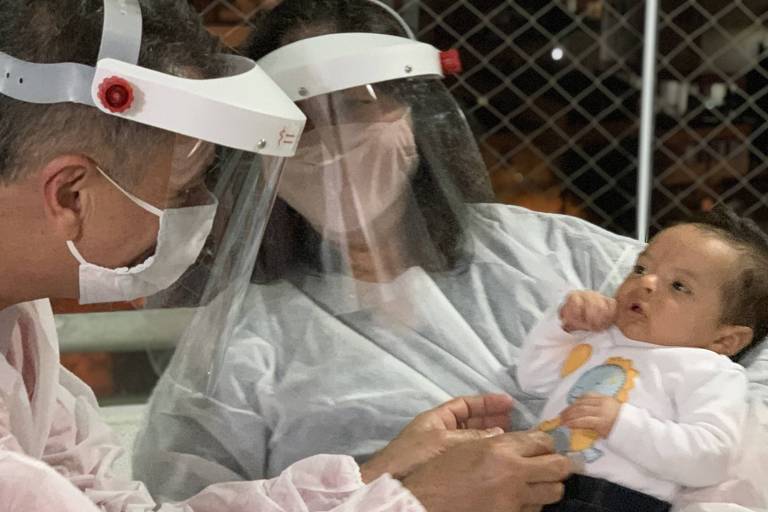One of the first words Flora said was "stretcher." She meant "mask." And she would cry whenever one of her parents put one on. She understood what it meant: they were leaving the house, and she would miss them.
Flora was born on March 11, 2020, the same day the World Health Organization declared a pandemic due to a coronavirus that, over the next five years, would kill at least seven million people, 715,000 of them in Brazil.

Luís, born during the pandemic, meets his grandparents. - Gerson Salvador/Gerson Salvador, acervo pessoal
Hardly anyone tasted her first birthday cake, decorated with crabs, mermaids, and other sea creatures made of icing. Only her paternal grandparents and a couple of family friends were there.
Nearly 250,000 Brazilians were born that March, a month that saw almost 4,000 daily Covid deaths.
And if the pandemic period was tough for adults, imagine for children. The first six years of life are considered "a window of opportunity," says Mariana Luz, CEO of the Maria Cecilia Souto Vidigal Foundation, which focuses on early childhood.
The consequences were significant. Medical checkups and vaccination routines were disrupted, and students across Brazil went, on average, a year and a half without school—longer than in most countries.
[Lea el artículo original](https://www1.folha.uol.com.br/cotidiano/2025/03/criancas-da-pandemia-chegam-aos-5-anos-e-covid-ainda-impacta.shtml)